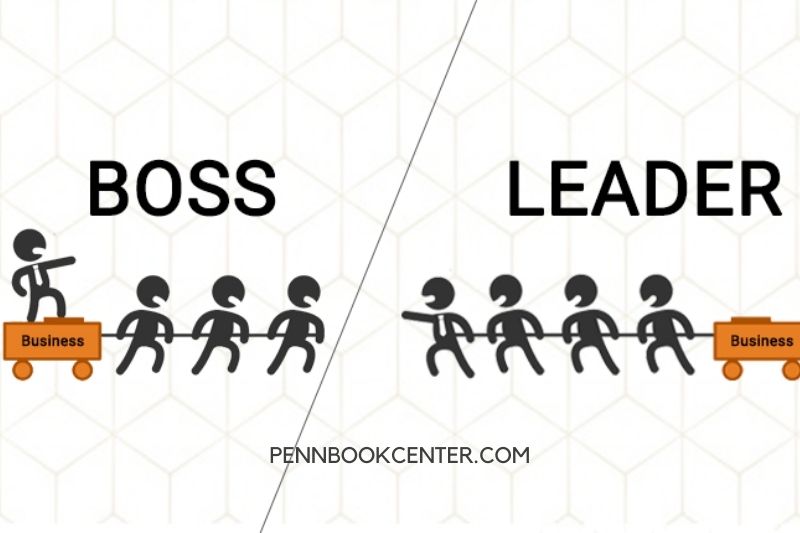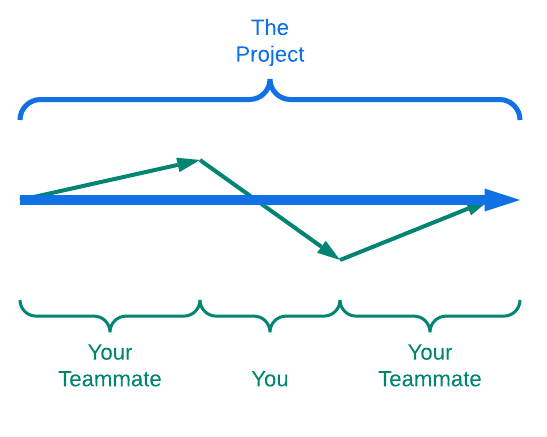Managing Voliday: The Human Aspect
May 2022 (1261 Words, 8 Minutes)
Some Context
As part of the 3rd bachelor year’s curriculum, students of the Games Programming section of the school are tasked with creating a video-game over the span of 7 months (end of september to end of april). During the scholar year of 2021 to 2022, the school, along with the support of its students, has organised a collaboration between the Game Programming, Game Art and Sound Engineering students which resulted in the project that culminated in the creation of Voliday, a city builder wholly created using the video-games’ industry’s standard tools.
This collaboration ended up involving 39 people across the school sections mentioned above, and I had taken up the role of Project Lead. The Game Programming students acted as internal clients for the other teams of the project, establishing specifications and validating the work done by our teammates.
This was my first experience having to organise this many people, the biggest team I had to work with beforehand being composed of 4 people. Of the 39 people, 35 were students, such as myself, the remaining 4 being our teachers who acted as stakeholders for the project, only advising when requested or intervening under exceptional circumstances.
Key Challenges: The Communication
Such a project had presented us with many challenges I had little to no experience with. Let me go through the key ones in order.
Firstly, in such a large team, good communication is absolutely critical. The most crucial tool to ensure a common vision of the project turned out to be copious and reasonably well designed presentations (we’ve used Google Slides for creating those). Below in an example of an opening slide we’ve used to explain the game design of our game to François Dumas, Ubisoft’s Audio Director who had the kindness to give the Sound Engineering Team a tailored month long course on the subject of audio production for video-games using Wwise:

I will not go as far as saying that our presentations were flawless, but in the vast majority of situations they were an invaluable support to convey our idas to various people in a concise way, and thanks to Julien Kobler, the creator of the visual assets we’ve used, in a visually pleasing way as well.
The second tool I have found to be invaluable to ensure good communication between the teams involved in the making of the game was having people in leadership positions be able to talk to each other directly face to face, on the premises of the school. Having started my curriculum before the COVID and now finishing it after the lifting of social restrictions, I can without a doubt say that there are simply too many opportunities for clarifications or for updating people that are lost when working in a fully remote environment. I do not suggest that a fully remote organisation of a team is impossible (there are plenty of cases of the contrary), however I do believe that fully remote work hinders communication greatly.
A lot of clarifications, updates or miscommunications were addressed on the fly during simple small talk with our teammates in the hallways of the school. By the end of the project, I had personally taken the habit, before leaving school, to just walk by the places I knew my teammates liked to work to wave them goodbye and in many cases, this would result in them calling out to me to clarify something or update me on their progress, which I would then relay to the relevant people.
Key Challenges: The Empathy
The second challenge I’ve had to learn to face was improving my sense of empathy. While I am certainly not some heartless bastard, I did not prior to this project have many opportunities to hone my empathic skills. All prior cases where I was designated as the Project Lead, as was the case with this one as well, were due to my penchant to take initiative, not my social skills. This project however put me in a very interesting position: in a student project, one cannot simply display force to motivate people.
In a traditional work environment, each worker is remunerated (or at the very least ought to be) and if a worker underperforms, they run the risk of getting fired. This was not the case of this project since it was done in an educational context, in fact the licences of the software we’ve used explicitly forbid monetization of our work. Likewise, underperforming teammates could not be simply removed from the project and replaced. Everyone, with the exception of the Sound Engineering Team, had to participate to the best of their abilities in the project. It has however quickly become evident that different people have different priorities, varying amounts of available time, and differing motivations. The challenge therefore was, in an unconventional manner, to ensure that every member of the project had the opportunity to participate in the making of the game to the best of their personal circumstances.
This basic constraint has forced the team members in positions of leadership, myself included, into an empathy driven mindset. If one wanted to fulfil their leadership role successfully, we had to be considerate and empathic since the only way left to get the most out of people was to understand their needs, objectives and limitations.
I certainly do not pretend to be a very empathic leader (nor a very good leader for that matter), but this experience has definitely made me much more aware of other people’s experiences and showed me well the importance of empathy when working in a team, as well as exercise extensively my sense of empathy.

I do wish to issue a warning however: in trying to motivate people by leading by example, one must not accumulate too many responsibilities, as ended up happening in my case. Our situation was a lucky one since the responsibilities I ended up picking up then slowly re-delegating to my teammates were ones I was able to reasonably fulfil thanks to my personal circumstances but such an approach is simply not viable in most cases. If you wish to read on it further, I’m leaving here a well put together blogpost explaining the concept of the “Hero Syndrome” in greater detail: https://www.linkedin.com/pulse/hero-syndrome-work-place-lance-charlton
Key Challenges: Working Together
Lastly, the last key challenge I have faced and realised the importance of later than I would have liked was that of aligning individual and global goals. On multiple occasions, thinking doing best I’ve overstepped my responsibilities and in ensuring the progress of the project as a whole, would discard or override the work of individuals. While those actions might have looked optimal at the time, I quickly realised the negative effects of such an approach. Such actions are triply bad. First, it wastes effort: if the work is entirely discarded, that is a simple waste of a teammate’s time, and if the teammate’s work is replaced, that is not only the waste of said teammate’s time but also an additional workload taken up by someone else. Second, by discarding or replacing work deemed “insufficient”, one conveys the message to the teammate that has originally provided it that they bear no responsibility and as a consequence have no reason to take ownership of it. Thirdly, discarding or replacing someone’s work is obviously terrible for motivation and rather than doing so, it is very often possible to simply support them instead.
All of these considerations are subtle for someone working under stress which is why it is that much more important to avoid the “Hero Syndrome” as accumulating responsibilities will lead not only to potential ego conflicts but also to the diminishing of time allocated to each assumed responsibility, increasing the risk of the above situation occurring. One must always be mindful of the individual goals of one’s own teammates for the project to progress in a healthy way.

Conclusion
To sum things up, this project has been a great opportunity not only to make a game to showcase in one’s own portfolio but has also been very instructive by giving me first hand experience of leading a large team and demonstrating the challenges and subtleties involved in such an endeavour. I would certainly have done many little things differently if I had the opportunity to start this project over, but considering my inexperience and the results we’ve achieved in the past 7 months, I am proud of the work of our team and very thankful to all the people who made this project possible.